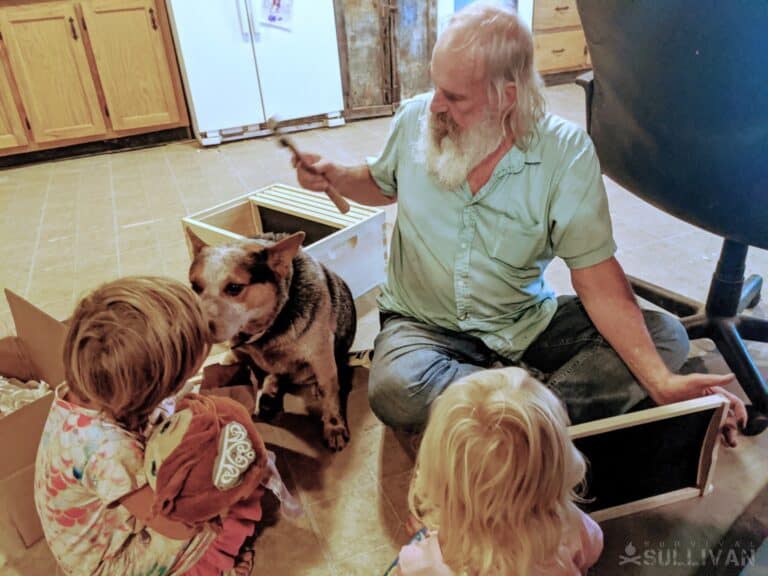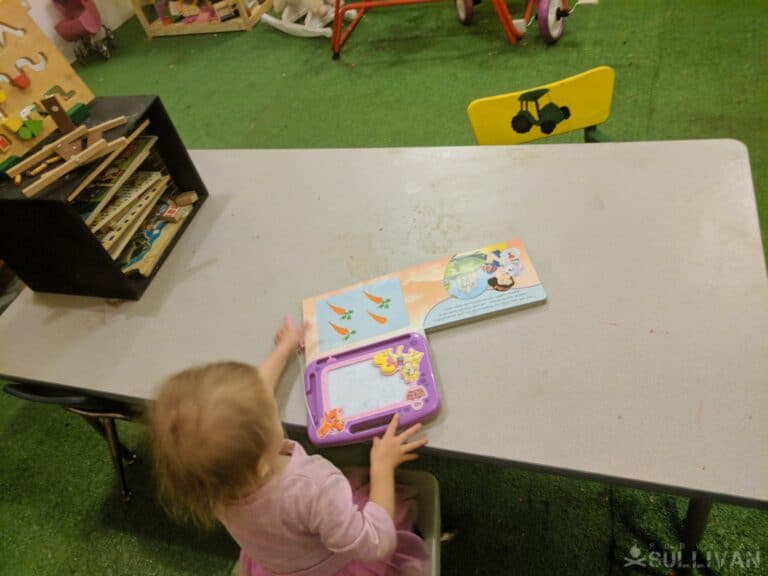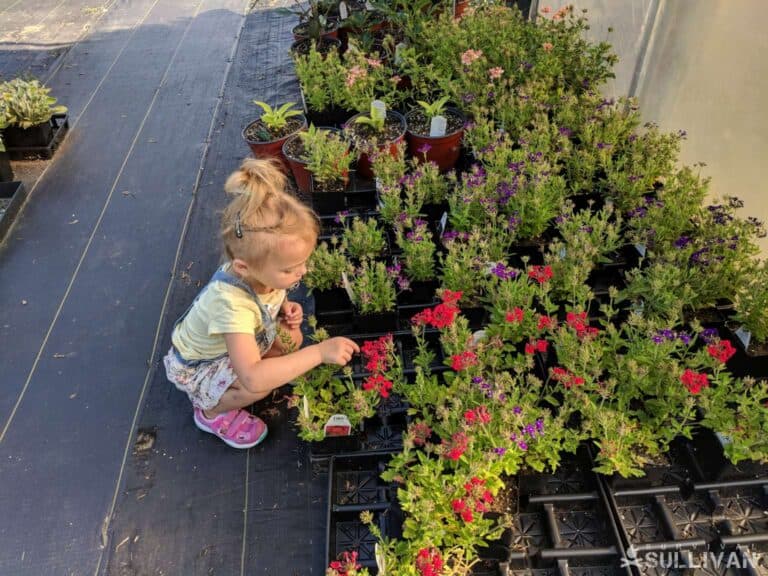Why are you prepping? I don’t mean what type of SHTF specific SHTF scenario are you prepping for, but what is the motivation behind your survival and homesteading efforts.
Self-preservation is of course, a primary factor in why we spend countless hours and dollars preparing for a doomsday disaster, but for most of us, it is our families we are thinking about when learning new skills, growing and stockpiling food, and putting together survival kits. Our children and our grandchildren are the motivation for our prepping.

Preppers should never become “helicopter” parents. Prepping moms and dads may always want to know where their children are so they can help them get home if the SHTF, but preppers should know better than to coddle and micro-manage their offspring like far too many conventional parents…especially liberal parents, are doing these days.
Prepper moms and dads should not pat themselves on the back too much simply because they already know better than to be helicopter parent. Simply fighting the urge to parents hover over your children and grandchildren every moment of their day is not enough to ensure you are raising a self-reliant child.
It also does not necessarily mean you are truly engaging in the free range parenting style that the youngsters need to learn how to function under in case their survival is ever dependent upon their own skills, mental response to threats, and actions.
After the economic collapse hit in Venezuela, you know, the one nearly 100 percent ignored by the mainstream media, children resorted to begging in the street, eating out of trash cans, stealing, and turning to prostitution, to survive either because their parents could not provide for them, or had been killed.
Children are the ones who suffer most during a long-term disaster of any type. They are not large or strong enough to take care of themselves and lack the skill set and maturity to understand when a threat is present – especially when that threat is disguised as a kind and helping hand.
When a magnitude 7 earthquake it Haiti during the first days of 2010, thousands of children immediately became homeless, and instantly turned many of them into orphans, as well. The exact same scenario played out in Sri Lanka in 204 when a tsunami struck on an otherwise picture perfect Sunday afternoon.
Although many or our friends and neighbors unfortunately think such tragedies could not possibly happen here, and that those kinds of things only happen in Third World countries, the five million of so prepping Americans know otherwise.
We also know there is a very real possibility our children or grandchildren can become orphans…or at least should. Do not let your survival bravado surge so high because of your own skillset, stockpiled preps, and survival homesteading fortress fool you into thinking you are a bulletproof Super Man or Super Woman of the apocalypse.
Forming a tribe (mutual assistance group) to prep with does vastly decrease the chances your children will become orphaned if you die or are killed during a SHTF scenario, but it by no means eliminates the possibility.
If your prepper retreat falls, either due to a man-made or natural domino effect of the doomsday disaster, or a debilitating or deadly disease spreads through the tribe living inside the retreat, your children, and those of your fellow tribe members, could end up all alone in the ultra-cruel new world.
- Would your children know what to do if they were left on your survival homesteading retreat either all alone, or the only healthy members still upright?
- Could they do the chores needed to keep the food sources thriving and alive? Can they kill, butcher, and preserve meat all on their own?
- Could the children fulfill perimeter security and self-defense duties?
- Would they always adhere to safety protocols? Would they be lured out in the open or to open the compound gates by a sad and desperate old woman or a starving youngster around their own age? What if the decoy for the attacker who has been watching and hiding in the woods used an attractive young woman in a torn dress begging for help because they saw teen boys manning the gate?
- Would they know when it is time to abandon the survival retreat, how to find hidden caches in the woods, and what to do next?
These are just a few of the hard questions you need to not only be asking yourself, but the scenario you need to discus with the children in your group while teaching them survival skills. Putting together an everyday carry (EDC) survival kit for kids and sticking it in their backpack after showing them how to use the gear, will simply not be enough to help the youngsters to survive without adult assistance.
The act of explaining emergency disasters and the concept of prepping to the children in your life is a good start to training them how to survive on their own, but it is only the first step in a very long process. Planning to homeschool your children during a SHTF long-term disaster, if you are not already (and you should be!).

Are You Raising Prepping Kids or Merely Kids of Preppers?
Kids of preppers can be as self-absorbed, video game and social media addicted as children of conventional parents. These children are far more likely to become either victims or statistics during a SHTF scenario.
Prepping kids, on the other hand, are actively involved in their parents self-reliance lifestyle, are learning survival skills alongside their parents, aware of their surroundings, and have been allowed to discover, fail, and succeed, and learn from their mistakes.
Critical thinking skills and being able to comprehend what’s going on around them in an effort to absorb all vital components and respond accordingly is an essential part of any free-range childhood experience.
Fre- range parenting, in its most simplistic form, is allowing children grow up the way we did before the country, in my opinion, got far too soft and politically correct. Parents are now actually putting knee pads, elbow pads, and helmets on their babies when they are learning to walk!
Those same children will be padded up when they learn to ride a bike, have their hands held by an adult any time they leave the home, and have a parent standing over them when they are playing at the park or even in their own backyards!
Keeping your children close and safe because a disaster large or small, could happen at any moment could get them killed. If you want them to be able to live on after you perish during a SHTF situation, and I am sure that you do, far more has to be done to prepare them for a scenario that you must to admit to yourself, is not unthinkable.
Self-Reliance Tips for Prepper Parents
1. Teach your children responsibility from a very young age, give them chores around the survival homestead, even if it is just having them help collect eggs from the chicken coop when they are toddler. They need to learn from the get go that if the animals are not taken care of and remain healthy, they will not produce food and the family will go hungry.
2. Have your child lead the way to the barn and back to the house as you walk along beside when they are two or three. Let them choose the way to go and only interject when they get off track.
3. As the child ages, expand the orienteering lessons and teach them how to find their way home from various spots on your property, and off your property both by vehicle and on foot. Teach to look at road signs and the environment around them to find their way.
4. Once your child is mature enough, have them walk though the woods around your property seemingly alone – or around your neighborhood if you are not blessed to live in a rural area (yes, I am not only biased, but right about rural areas being the best place for all prepper to live!)
Trail along behind them when they are still little, ages 7 to 9, but do not let them see you. Only show yourself if they are potentially in danger or go the wrong way for an extended distance – and I am not talking 100 feet or so here, folks.
5. After the child has mastered finding their way in the woods, both during daylight hours AND at night, have them put into practice all of the foraging skills you have been teaching them. During each season, foraging for wild edibles opportunities exist. Task the child with bringing home specific edibles to use in making a meal for the family.
6. When your child is mature enough and has shown responsible behavior on the solo (with hidden supervision) walk and hides, turn them loose. This will be hard, excruciatingly hard, but the alternative is your beloved offspring learning how to get home safely on their own after the SHTF with no prior experience to draw from – mental muscle memory!
By this time, you have already taught other survival skills and given them an EDC survival kit base upon their skills and maturity.
7. Start teaching children how to milk the goats, cows, and trim hooves on livestock when they are little by helping you, then modeling what you are doing with your supervision but a little guidance as possible. Then, when they are ready, turn them loose on the chores and make them responsible for the milk, eggs, etc. the family will have to eat that day.
8. Repeat these same self-reliance through chores training steps when it comes to tending the family garden. Create a child’s garden when the children are mere toddlers and help them tend to it. As the child grows, so does the gardening and the chores related to it, as the supervision decreases.
Teach the children to start and preserve their own seeds, make and maintain a compost pile or their garden – including the collection of manure for the pile. As the child matures and grows physically, include the making of natural pesticides to the gardening chore after giving them hands-on lessons in garden pest identification and detection
Teach them how to run the rototiller and the tractor. They should be taking lap rides on the tractor when they are toddlers to get used to the feel, sights, and smells of it as it does various jobs on the survival homestead.
9. Teach your children how to hunt with a bow and rifle, how to shoot a handgun, make and set traps, use a knife, slaughter, and butcher all the livestock on your survival homestead and in the woods in your area. The younger you allow the children to watch and play a small part in each process, the better prepared they will be and the less traumatic the natural course of old-fashioned farm life, will feel.
Modeling the safe and proper way to perform all these essential tasks and being willing to let your child engage in them without supervision, based upon their skills and maturity, will prepare them for meat garnering if they ever have to do it solo.
10. Make sure you child knows how to prepare the meat safely, can tell if the meat from both wild game and livestock on the retreat is safe to eat. Learning how to cook over an open flame will be a fun family activity.
You absolutely do not need to resort of militaristic or scare tactics to teach your child to a prepper kid. Quite to the contrary, you only need them to adopt a self-reliance mindset, just as pioneering children did, and understand it is a great way to live you life because you are always prepared to deal with what may come (like a snow storm or power outage after a summer storm) and therefore have no need to panic or fear going hungry or getting cold.
11. Enroll the child in 4-H and a scouting group that is focused on teaching self-reliance skill and responsibility. The children they are learning and exploring with could become their mutual assistance group if they become orphans during the SHTF disaster.
Boy Scout and Girl Scouts USED to be excellent sources of such training, but sadly, in recent years, both groups have decreased their focus on outdoor skills, become infused with social political issues, and even started offering a video gaming badge, in some troops…in my opinion as a former Girl Scouts leader.
So many parents apparently feel the same way, a growing number of alternatives to the scouting programs noted above, has been started and just keep on growing. American Heritage Girls, Frontier Girls, and Trail Life Scouts, are excellent programs for parents seeking a traditional scouting experience for their children.
12. Read survival books designed for kids with them while they are young and always engage in a question and session during or after reading the book.
Disclosure: This post has links to 3rd party websites, so I may get a commission if you buy through those links. Survival Sullivan is a participant in the Amazon Services LLC Associates Program. As an Amazon Associate, I earn from qualifying purchases. See my full disclosure for more.
Some great resources for prepper kids include:
- Willy Whitefeather’s Outdoor Survival Handbook for Kids
- Nature Girl
- The American Boy’s Handy Book
- Into the Forest
- If We Survive
- Prepper Pete Prepares
- Survivalist Sam Stocks Up
- and 52 Prepper’s Projects for Parents and Kids: A Project a Week to Help Prepare Your Child for the Unpredictable.
13. Involve the children in the energy works at the survival retreat following the same young age watching and assisting as they can through doing the chores on their own, process.
Children must learn how to choose, cut, chop, and split the firewood that keeps the home warm – and of course, how to start a fire in the worst of conditions without the use of a lighter or matches. Teach the children not only how the solar energy system work, but how to repair it, and repeat this training for the hydropower or rain water collection system, sanitation system, and wind turbines you use on the survival retreat.
14. Once the children learn the basic of wood cutting, take their skills a step further. Teach them how to identify all the different species of wood in the woods around the survival homesteading retreat, learn what types of the best for generating heat, making furniture and for building.
How big of a wood pile will need to be cut to provide enough heat for the winter? What types of wood catch quickly? Which ones will most likely burn slow but last all night?
These are just a few of the questions you want your children to have learned enough about the wood energy you use to ask..answer them even if the children do not pose the questions.
Do you children know how to work the dampers on your wood stove, when and how to remove the wood ash and all of the many uses for the ash? There is a lot more to keeping the fire going (especially safely) than simply chopping and splitting the wood and tossing it in a door on the wood stove or into the fireplace.
15. Carpentry, welding, how to use both manual and power tools, vehicle and equipment mechanics, sewing, cooking, baking, and a host of other typical homesteading skills must also become a part of the child’s daily life.
16. First aid will be one of the most important skills you begin teaching your children you and then expand on, as much as feasible, as they mature and age. Teach your children how to grow their own apothecary and how to make salves, tinctures, poultices, and natural medicines to treat fevers and the flu.
A sick child attempting to get through a post-apocalypse day alone, will not survive very long, not long at all.

Adding some medicinal herbs and flowers to their garden and having them help make natural medicines by picking the fruits of their labors, will become a skill ingrained in their minds as deeply as learning how to put together letter to spell their own names, if you start early, repeat, and expand the training often.
If you are bed ridden and running a high fever, and diarrhea has put you into a dangerous state of dehydration, will you child know what to go pick from the garden to help you and what to do with the natural medicine ingredients once back inside the house?
The answer to this question needs to be a resounding yes, if you do not want your child to be orphaned during a long-term disaster, when calling 911 is not an option. Use dolls, injured livestock, and animal hides after slaughter to teach children how to put in stitches, splint a broken leg, and deal with puncture wounds.
You child should also be equipped with the supplies needed to deal with a snake bite if they are alone or to splint their own broken leg, in their EDC carry bag.
17. Don’t just put together a bugout bag, INCH bag, EDC bag, or 72-hour kit for your children. Have them help you do it and use the experience as a training session by having them explain to you (not the other way around) what each item in the bag is and the ways it can be used.
During these sessions, always take one thing out of the bag and ask them what is missing, use this same tactic when having the children help take inventory of the household preps.
Have the children weigh, and then carry, run, jump, or compete in obstacle courses while wearing their bags so they can get accustomed to how they feel on, get used to always taking the bag with them, and develop more physical strength and agility.
Also, ask the children if they can think of anything that should be included in their bags and allow them to add if it if it makes sense and will fit, or explain why the item cannot go in the bag. This will help them take ownership of the bag, and by extension, their own survival.
Do you remember how overwhelming it felt when you first began prepping? The sense of urgency you worked under to ensure you we ready for a SHTF scenario to evolve?
Just imagine for a moment, how your child would feel if he or she not only had to try to learn all those same skills AND take care of younger children at the retreat, or quite possibly, sick or injured parents, at the same time.
Final Words
In the back of your mind, you know that even if you engage in all of these free range self-reliant parenting activities with your children, they will still be targets for adults and at risk for exploitation and harm.
Yep, there is simply no way around that stomach-churning possibility. But, by not doing everything you can to train your child to go it alone, you are effectively ensuring they WILL be EASY targets.
Prepare yourselves, prepare your survival retreat or home, and prepare you children. Those are the three best ways, the only ways, to even up the odds and give your youngest loved ones the best chance at making it through a doomsday disaster alive.


Tara Dodrill is a homesteading and survival journalist and author. She lives on a small ranch with her family in Appalachia. She has been both a host and frequent guest on preparedness radio shows. In addition to the publication of her first book, ‘Power Grid Down: How to Prepare, Survive, and Thrive after the Lights go Out’, Dodrill also travels to offer prepping tips and hands-on training and survival camps and expos.

So a great article. No, my teenagers couldn’t survive on their own. My adult son told me that he wouldn’t know what to do either so there is a lot of work to be done. Thanks for all the ideas and information.
Fran, Like many of us prepping parents, it sound like you have your work cut out for you getting the teens and your adult son ready. My grandchildren will grow up ready, now that we all have houses on our survival homestead, and our daughter and son-in-law have learned a lot, but have a long ways to go as well. I am most concerned about my husband’s son who lives over an hour away. He has to get his wife and our oldest grandson a long way, perhaps on foot, to reach us. We keep introducing prepping skills more and more with them, more than they like, but one day all the gear gifts and knowledge may save their lives. We put them together a INCH bag and great first aid kit several years ago as an anniversary gift – it at least made me sleep better at night knowing they had supplies and the knowledge to use them. All our adult loves ones now get only self-reliance gifts of one kind or another from us for birthdays and Christmas. It took a while, but now they get excited about what we are going to make or come up with next for their gift.
Tara has written a great article that I have printed out for my step-daughter & husband in another attempt to prepare themselves and the grand children for what appears to be headed our way.
SgtChf, Thank you for the compliment, I am thrilled that the information was printed and handed out to a loved one to help them see the value of being prepared. “Life Assurance” is how I keep describing our survival plan to non-preppers, it seems to get their attention and hopefully sparks some interest in becoming more self-reliant. If you haven’t come across it, you might really appreciate the article about preparing your home for non-prepping loves ones to arrive post-SHTF here on Survival Sullivan.
I have enjoyed all of Tara’s articles that I have read. She provides some great information; however, as a professional writer and editor, all I can say with the best of intentions, is that she is in serious need of an editor.
Starla, I am glad you liked all of the articles. What a beautiful and unique name. I have only heard it once before, one of my volleyball players was named Starla, she was a really cool kid and one heck of an athlete. I will keep a closer eye on the proofreading, I have been used to submitting to a large political and breaking news websites that had a team of editors climbing over every word, and only had to focus on the creative and informative end of things. Survival Sullivan is my favorite place to write, and I do not want to disappoint our great readers!